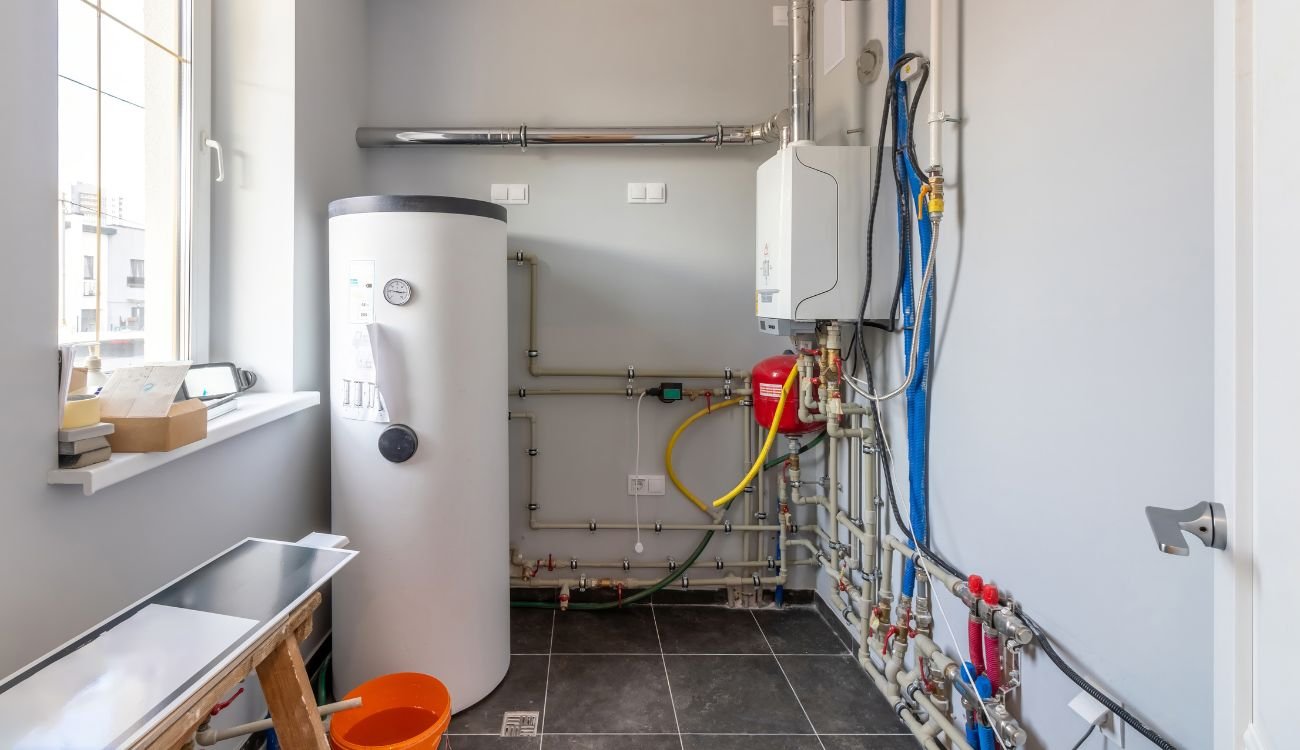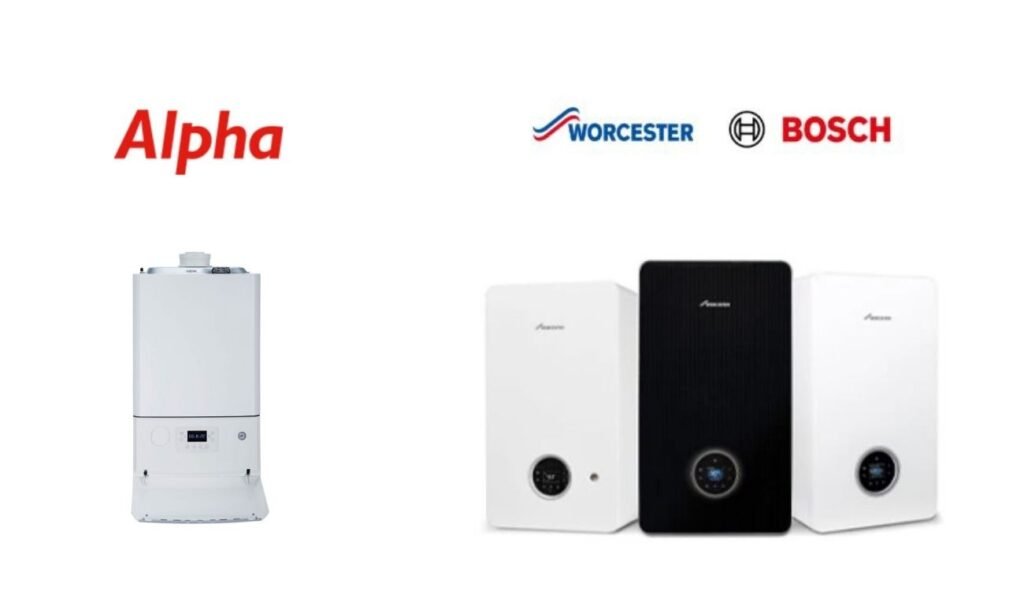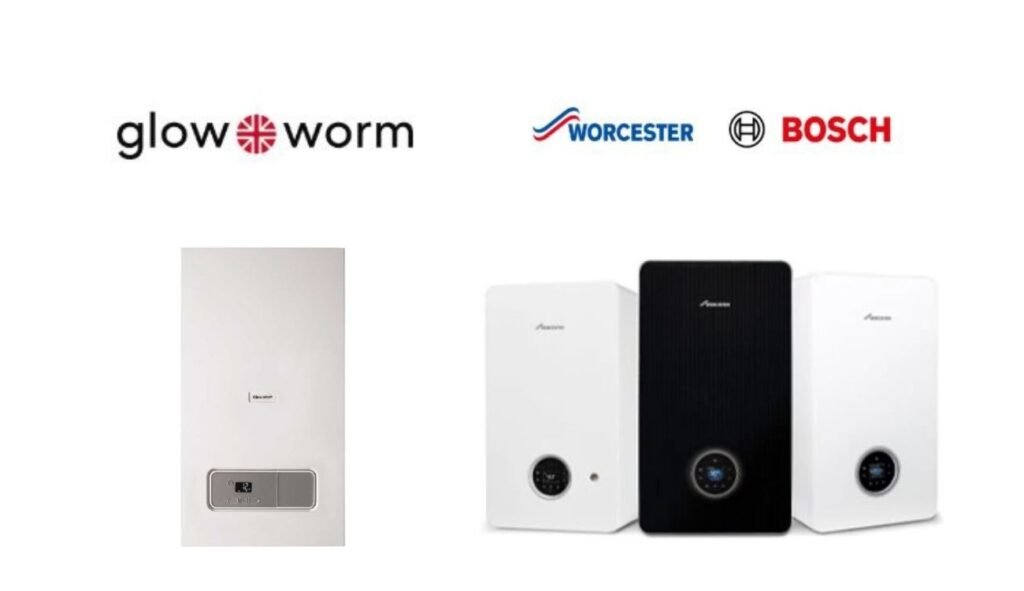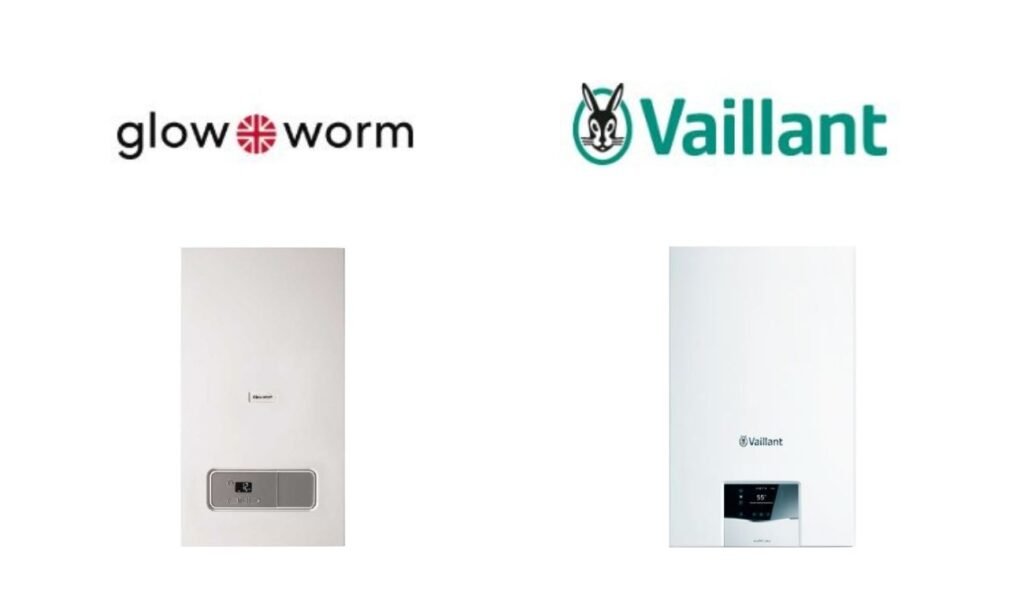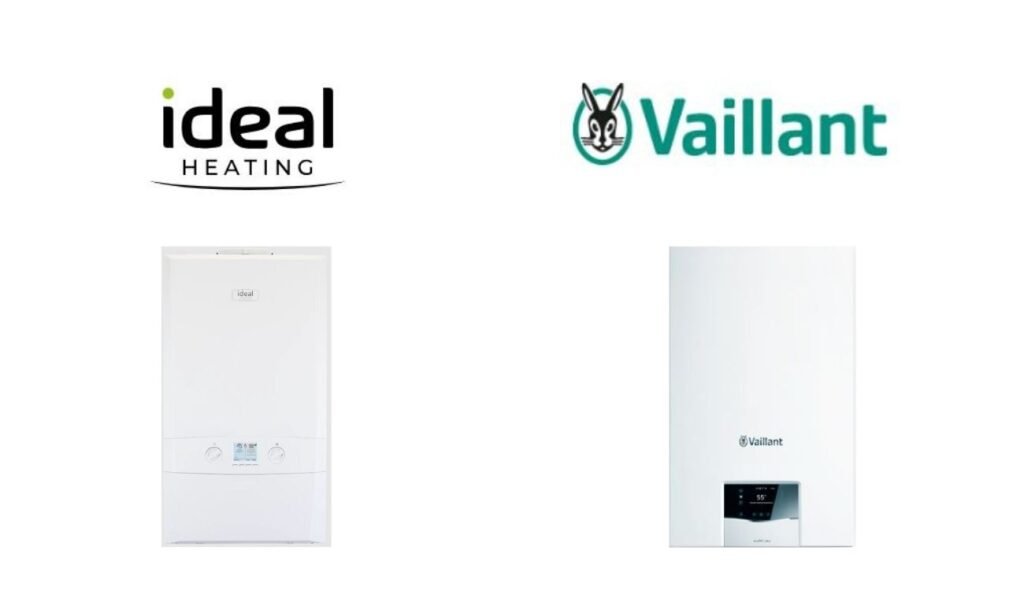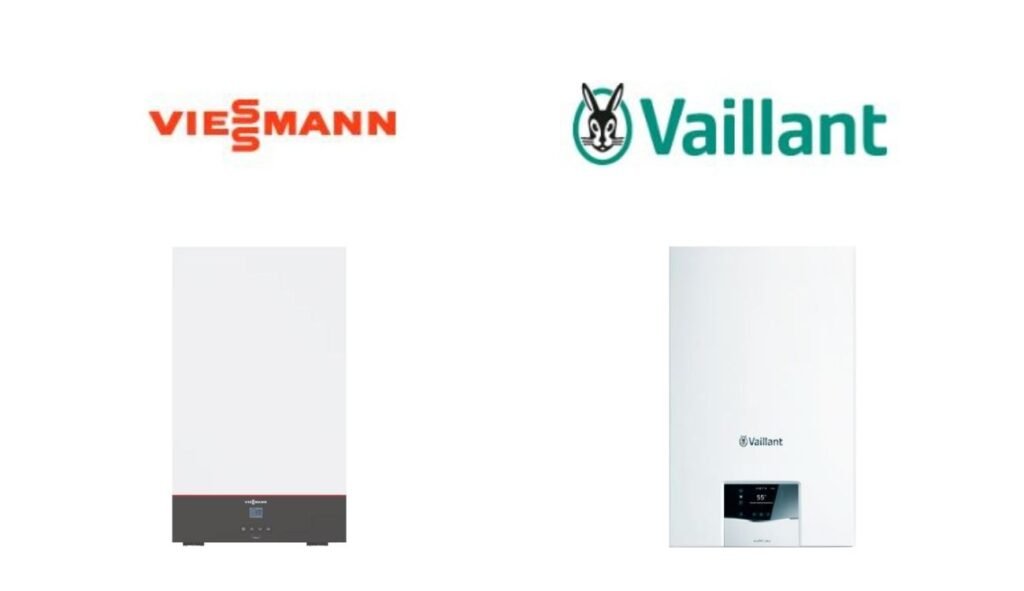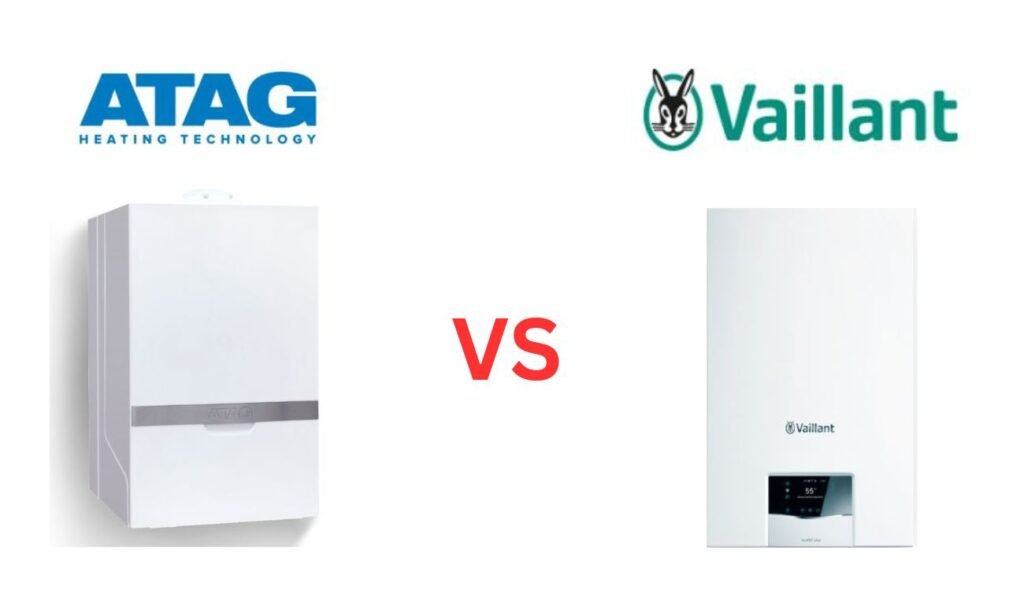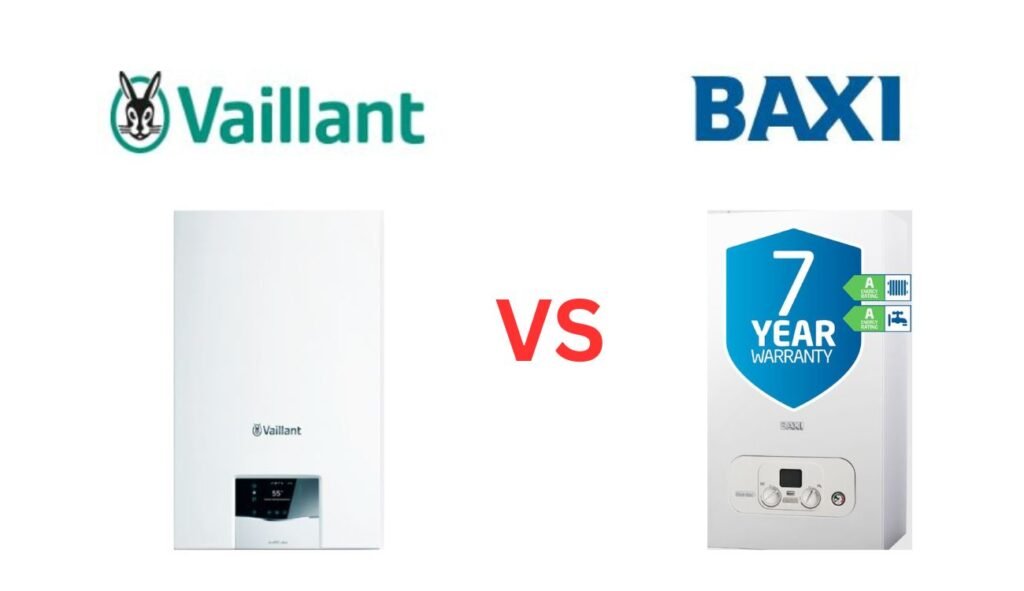Deciding between a system boiler vs a regular boiler for your home in Newcastle and the North East? In this guide, we’ll compare their efficiency, installation process, and space requirements to help you choose the right option for your home.
System Boiler vs Regular Boiler
What Are System Boilers?
System boilers stand out as an efficient heating option for numerous homes due to their space-efficient design and lack of need for a separate cold water tank, unlike traditional conventional boilers. They are particularly suitable for households with limited space availability.
Within the boiler unit itself, you can find essential components such as the heat exchanger, expansion vessel, and built-in circulating pump – all contributing to minimising the necessity for extra external hardware. This consolidation makes system boilers not only compact but also powerful in terms of providing heat efficiently.
These integrated features, combined with a robust central heating system, amplify the performance capabilities of these types of boilers.
A significant benefit offered by system boilers is their ability to provide consistent hot water simultaneously across various faucets without compromising on pressure levels. This quality renders them perfect for residences facing high demands, like those possessing several bathrooms or large family sizes.
The elimination of an additional expansion tank tied to the mains supply during installation presents yet another appealing characteristic by simplifying setup processes significantly, making it even more attractive in scenarios involving rigorous demand for hot water provision from multiple sources within domestic settings.
Advantages of System Boilers
- Space-saving design: No need for an external expansion tank, ideal for smaller homes.
- High hot water capacity: Can supply hot water to multiple taps simultaneously.
- Perfect for larger households: Well-suited for homes with multiple bathrooms and high hot water demand.
- Convenient scheduling: Allows users to program when to heat water for on-demand availability.
Disadvantages of System Boilers
Requires a hot water storage cylinder: Unlike combi boilers, system boilers don’t provide instant hot water and need time to reheat the stored supply. Take a look at our guide on combi vs system boilers to clearly understand the key differences between the two.
Takes up more space overall: Although the boiler unit is compact, the additional storage cylinder can be bulky and requires dedicated space.
Limited hot water supply: Once the cylinder’s hot water is used up, you’ll have to wait for it to reheat before more is available.
Higher installation cost: Installing a system boiler can be more expensive especially in homes that don’t already have a hot water cylinder setup. If installation cost or space constraints are a concern, you might also explore alternatives like electric boilers or heat pumps that could better suit certain households.
Potential heat loss: Stored hot water can gradually lose heat over time, especially if the cylinder is not well insulated, which may affect energy efficiency.
What Are Regular Boilers?
Regular boilers, commonly known as conventional or traditional boilers, have systems that depend on a hot water cylinder and an independent cold water tank, typically located in the attic space.
The design of a regular boiler system ensures a reliable supply of hot water, which is particularly beneficial for larger residences with multiple bathrooms.
For effective operation, these types of boilers necessitate not only a storage tank for cold water but also an immersion heater alongside the hot water cylinder.
Despite requiring more room than system boilers do, they excel at delivering consistent flow to several taps at once, making them highly suited for homes with significant demands for simultaneous access to hot water.
The necessity for both an extra cold-water cistern and additional components renders their setup more intricate and space-intensive when compared to other options available on the market.
Advantages of Regular Boilers
Ideal for older heating systems: Easily integrates with existing pipework, reducing the need for major alterations.
Minimal disruption during renovations: Especially beneficial for homes with dated infrastructure.
Backup hot water supply: Can include an immersion heater in the cylinder, providing hot water even if the boiler fails.
Efficient heating control: Designed for effective heating management, which can help improve overall energy efficiency.
Disadvantages of Regular Boilers
Requires multiple components: Needs a separate hot water cylinder and cold water storage tank, which can take up significant space.
Not ideal for smaller properties: Due to the space requirements, regular boilers are less suitable for homes with limited loft or airing cupboard space.
Slower hot water delivery: Hot water isn’t available instantly and may take time to heat up, especially during periods of high demand.
Complex installation process: Installation can be more complicated and time-consuming compared to combi or system boilers, particularly in homes without existing pipework for a regular setup.
Potential for heat loss: Stored water in the cylinder can gradually lose heat if not properly insulated, which may reduce energy efficiency.
Considering a new system or regular boiler? If you’re based in Newcastle or anywhere across the North East, Future Heat is here to help. Get in touch today for your free boiler installation quote and take the first step toward a warmer, more efficient home.
Regular Vs System Boiler: Key Differences
When deciding between a regular and a system boiler, it’s essential to look beyond basic functionality. While both systems provide central heating and hot water, they differ in how they’re installed, how much space they require, how efficiently they operate, and what they cost.
To help you determine which is better suited to your home and lifestyle, let’s explore the key factors that set them apart.
Installation Process
System Boiler
The process of setting up a system boiler typically takes between one and three days to complete, based on the intricacy of the task at hand. A key advantage of these boilers is their independence from an external feed and expansion setup, which lends itself to a more uncomplicated installation routine.
System boilers directly engage with a hot water cylinder, diminishing the requirement for elaborate pipe networks and ancillary units.
Due to this reduced complexity in connecting elements, there tends to be a decrease in associated installation costs because there’s no demand for installing a separate cold water tank. This efficiency does not only lead to shortened timelines, but also less interference with daily life within your residence.
System boilers are designed such that they can seamlessly assimilate into already-present heating systems with minimal alterations needed, offering households an appealing option when considering heating solutions.
However, if you’re planning a full renovation or repositioning your heating setup, don’t overlook the potential cost of relocating a boiler, which can significantly impact your total budget.
Regular Boiler
The process of setting up a regular boiler is notably more complex, owing to the necessity for extra elements such as a cold water tank and substantial pipework. Due to this intricacy, putting in place a regular boiler requires additional time and specialised knowledge.
The need for added pipework that links the cold water tank with the system can escalate both installation duration and expenses.
An expansion tank typically accompanies regular boilers, bringing yet another dimension of complexity into their installation. Nevertheless, even with these hurdles, regular boilers remain suitable choices for households whose existing heating systems are well-suited to integrate these necessary components.
Such compatibility often facilitates smoother transitions when updating older homes with new regular boilers.
Space and Storage Considerations
Considering the importance of space and storage, selecting between system boilers and regular boilers is a key decision.
Regular Boilers
Regular boilers necessitate having a cold water tank situated in loft spaces, which could substantially occupy the room and restrict your storage possibilities.
The additional requirement for feed tanks, among other components, not only demands more area but also increases installation costs.
System Boilers
On the other hand, system boilers incorporate many essential heating elements within the actual boiler unit itself, avoiding the necessity for external fixtures such as expansion vessels.
This streamlined construction allows these types of boilers to be housed in more compact areas, thereby providing an advantage in terms of saving space over traditional regular boilers.
Nevertheless, one should keep in mind that even with their integrated design features, system boilers still require accommodation for a separate hot water cylinder. This need might pose challenges when dealing with smaller living environments where space is at a premium.
Performance and Efficiency
Choosing the right boiler with high performance and efficiency is pivotal for your residence.
System Boilers
System boilers are well-suited to homes that require a substantial amount of hot water because they can concurrently supply several outlets without any loss in pressure.
This characteristic renders them perfect for spacious households or families with numerous bathrooms, as system boilers incorporate internal pumps and valves within their structure, which bolsters efficiency by minimising energy dissipation.
Owing to their connection with an external hot water cylinder, system boilers typically deliver hot water faster, making them advantageous for larger families.
There could be delays during times of peak usage when replenishing and reheating the storage cylinder due to high demand for heated water. Should the heated water in this cylinder not be used promptly, thermal losses might occur.
Homeowners looking for quicker hot water access might benefit from comparing combi boilers to conventional boilers, especially when prioritising instant availability and lower storage needs.
It’s also worth understanding how system boilers fit within the broader landscape of condensing and non-condensing boiler systems, as this affects energy efficiency and long-term performance.
Regular Boilers
However, regular boilers can handle concurrent use across various taps or showers effectively, another plus for extensive domestic settings. They do require a bigger tank for cold-water storage that may encroach upon efficacy and response time when addressing immediate needs for heat.
To optimise efficiency while diminishing costs associated with heating systems such as these regular ones, incorporating solar panels into their operation becomes beneficial. The selection process should take into account factors like bathroom quantity within your home, along with the required rates of heated liquid flow through faucets.
Additionally, performance can vary significantly by manufacturer, so it’s smart to understand the differences between boiler brands like Alpha and Worcester Bosch when choosing your setup.
Costs and Budgeting
Regarding financial considerations, both system boilers and regular boilers entail distinct expenses. The purchase and installation price of a boiler can vary greatly depending on its type, size, and brand, as well as any extra parts required.
Typically, the complete expense for installing a new boiler, factoring in the cost of the boiler itself plus installation charges, falls between £3,000 and £15,000. To give you a clearer insight into what you might expect financially from each kind of boiler, let’s explore the costs associated with them more closely.
System Boiler Costs
Installing a system boiler tends to be less costly than fitting regular boilers because the installation is more straightforward. The cost for just the system boiler unit can vary between £600 and £3,000, not accounting for the installation fees.
When you factor in these costs, you’re looking at a total investment that could range from £1,600 to as much as £5,000. On average, though, people typically spend about £3,300 on system boilers.
The final price tag for setting up a system boiler may fluctuate depending on how complex the job is and if there’s a need for extra components.
Because system boilers don’t require an external cold water tank or expansion vessel, they typically involve fewer materials and less labour making installation simpler and often more cost-effective.
Regular Boiler Costs
The cost of regular boilers usually span from £600 to £3,500. Factoring in installation fees brings the total cost range up to between £1,700 and £5,500. With an average expenditure of approximately £3,550.
Due to the necessity of extra components such as a cold water tank and extensive piping, installing regular boilers can be more costly.
Setting up a regular boiler typically requires intricate installation processes that contribute to heightened costs. Homes that already have compatible heating systems in place might experience reduced expenses associated with installing these types of boilers.
Which Boiler Type is Right for Your Home?
For larger homes in Newcastle and surrounding areas, a system boiler will likely be the better choice as they provide a high amount of hot water to bigger homes, whilst being slightly cheaper.
System boilers and regular boilers are particularly adept at serving homes with larger square footage or those households that feature multiple bathrooms because they can deliver ample amounts of hot water all at once.
When selecting a boiler, it’s critical to evaluate its output capacity relative to your specific needs for heating and hot water. Performing a heat loss survey will aid in determining the most appropriate size of boiler required to achieve peak efficiency while also helping reduce energy expenditures.
Contemporary boilers frequently come equipped with modifiable outputs which allow them to be fine-tuned according to individual household heating requirements. This makes modern units an optimal choice by offering efficient solutions that cater specifically to one’s home while maintaining quiet operation.
Individuals placing emphasis solely on their environmental footprint when considering their heat supply options without affecting other variables like domestic hot water availability may find that a dedicated environmentally friendly heat-only boiler represents an ideal solution.
Frequently Asked Questions (FAQs)
In many cases, yes – but it depends on the age and condition of your current heating system. A heating engineer will need to assess whether your pipework and radiators are compatible with a sealed system.
System boilers are generally more efficient than older regular boilers, especially those with gravity-fed systems. However, actual running costs depend on insulation, usage habits, and the efficiency rating of the unit.
Possibly. System boilers use a pressurised hot water cylinder rather than an open-vented one. You may need a compatible unvented cylinder for best performance and safety.
Yes, but regular boilers may require additional wiring or adapters. Most modern system boilers are compatible with smart thermostats like Hive or Nest straight out of the box.
Potentially. A modern system boiler with a pressurised hot water cylinder can be more appealing to buyers, especially in homes with multiple bathrooms or no loft space for tanks.
Our Verdict
To sum up, system boilers and regular boilers each come with their own set of pros and cons. System boilers are a great fit for homes that require a lot of hot water but have limited space available.
They deliver efficient heating in a design that conserves space. On the flip side, regular boilers suit larger homes better, especially those already equipped with traditional heating systems, as they provide steady hot water flow while being compatible with older setups.
When it comes to selecting the right boiler for your household needs, you should take into account various factors such as the size of your home, the demand for hot water supply you face daily, and how complex installation might be.
With thorough knowledge about how systems and regular boilers differ from one another, homeowners can make choices that promise comfort within their living spaces along with cost savings over time by optimising efficiency in operation.
Jamie Maguire is Managing Director at Future Heat Ltd, the UK-based renewable energy company specialising in heat pumps, solar panels and energy-efficient boiler solutions. He leads the company’s strategic vision to decarbonise homes and businesses across the UK by delivering innovative, sustainable heating and power systems. Jamie is passionate about shaping the future of energy, supporting communities and empowering teams of skilled engineers to deliver lasting value and carbon reductions nationwide.

